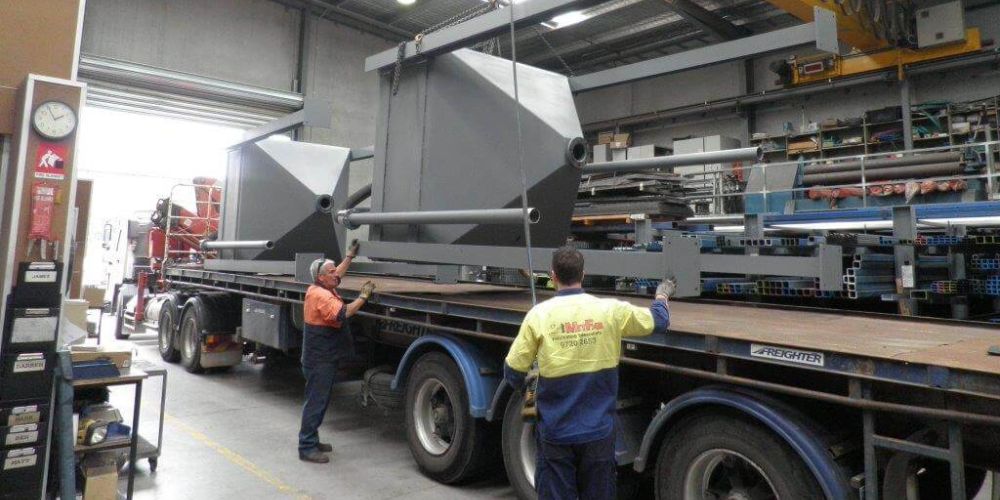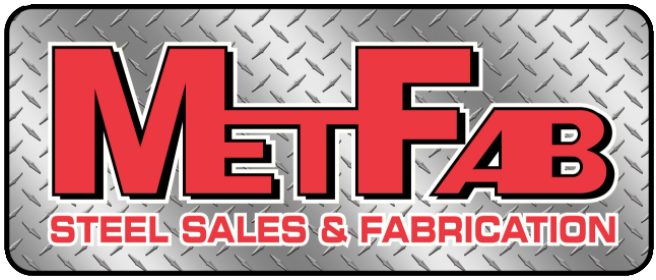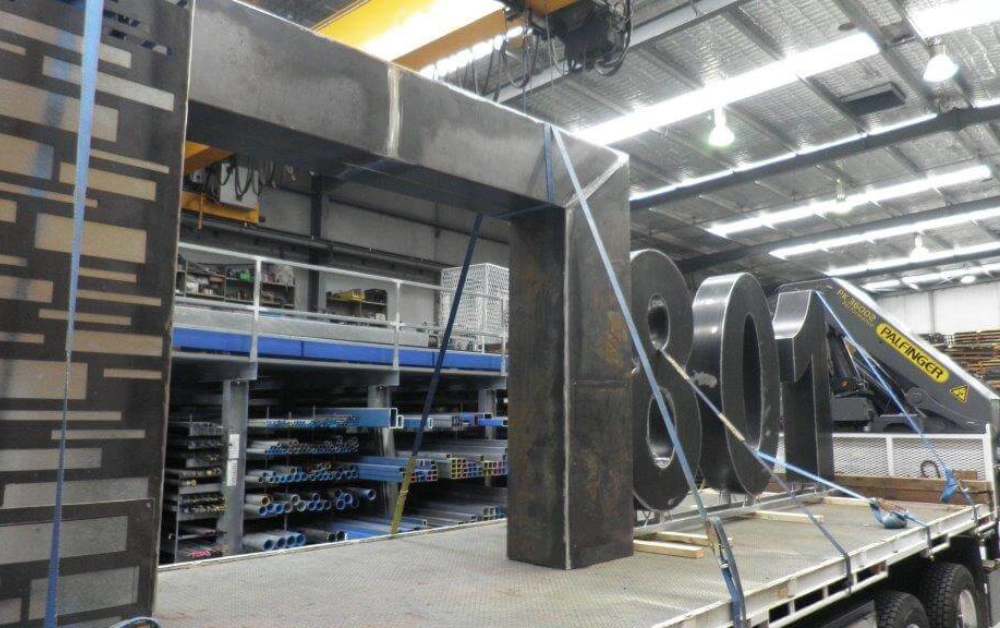Metal Fabrication Equipment Maintenance Tips
Let's talk about something important: metal fabrication. The process produces everything we use, from large structures to microscopic equipment. Consider it similar to assembling a jigsaw with metal parts that fit precisely together.
Now, here's the cool part: just like how we take care of our toys or gadgets to make them last longer, metal things need care, too. Knowing some metal fabrication equipment maintenance tips is a big deal. These strategies help produce metal things that are sturdy and functional for a long period.
So, stick with me whether you're interested in enormous machinery or want to know how things are manufactured. We'll delve into the world of keeping metal things and metal works products amazing and long-lasting!
Why Maintenance Matters for Metal Fabrication
Maintenance is essential in the field of metal manufacturing for a variety of reasons. Neglecting adequate maintenance can seriously impact efficiency, safety, and overall production. Here are six reasons why maintenance is critical in metal fabrication:
Equipment Longevity and Reliability
Regular maintenance ensures that the machines and equipment used in metal production are in good functioning order. Lubrication, calibration, and part replacements reduce wear and tear, lowering the chance of malfunctions and increasing the lifespan of expensive equipment.
Quality Control
Maintaining equipment precision and functioning is critical for producing high-quality metal products constantly. Well-maintained machines are less likely to create defective or poor components, resulting in higher product quality and customer satisfaction.
Efficiency of Operations
Efficient equipment completes tasks quickly and precisely, increasing production and less downtime. Regular maintenance tackles issues impeding efficiency, such as misalignments, worn-out parts, and blocked components, enhancing manufacturing operations.
Personnel Safety
Unmaintained equipment endangers the operators and other workers in the fabrication plant. Failures in machinery, such as cutting tools or welding equipment, can result in injuries or even fatalities. Maintenance reduces these risks by detecting and correcting any safety issues.
Cost Savings
While regular maintenance is expensive, it is an investment that will pay off in the long term—preventing failures, limiting emergency repairs, and avoiding production disruptions save money in the long run compared to the costs of unscheduled downtime and significant repairs.
Regulations and Compliance
Working with hazardous chemicals is common in metal production, and facilities are subject to safety and environmental requirements. Proper equipment maintenance ensures that it satisfies these compliance criteria. Regular inspections and maintenance assist in avoiding penalties and legal concerns that might occur from compliance.

Common Challenges in Metal Fabrication Maintenance
Access and Space Restrictions
Many metal production equipment contains sophisticated components that take more work to service. Repairs and modifications might be difficult due to insufficient space around the equipment.
Corrosion and Wear
Metal production equipment is frequently subjected to severe conditions, resulting in corrosion and wear. It might be challenging to prevent and manage these concerns with routine maintenance.
Complex Machinery
Metal production machinery may be elaborate and complicated, with many moving components. Maintaining this intricacy requires trained workers and a thorough grasp of the technology.
Various Materials
Working with multiple metals, each with its qualities may be required for diverse fabrication operations. Maintenance must analyze how these materials interact with and impact the device's functioning.
Repairs for Emergencies
Unexpected malfunctions can interrupt manufacturing plans and waste money. Being prepared to handle emergency repairs quickly is a difficult task in and of itself.
Management of Costs
Balancing maintenance expenditures, such as labor, spare parts, and equipment improvements, while maintaining within budget limitations necessitates careful financial planning.
Compliance with Regulations
Metal manufacturing plants must follow safety and environmental laws. Maintaining compliance with these standards and acquiring the requisite certifications can take time and effort.
Essential Metal Fabrication Maintenance Tips
Effective maintenance is crucial to keep metal fabrication equipment running smoothly and producing high-quality products. Here are some helpful maintenance tips to ensure the longevity and efficiency of your metal fabrication machinery:
Regular Inspection
Conduct visual inspections of your metal manufacturing equipment regularly. Examine the machine for signs of wear, damage, or misalignment. Know important components such as belts, gears, and bearings. Early detection of problems through routine inspections helps keep small faults from becoming significant failures.
Lubrication
Lubrication is necessary for lowering friction and increasing the life of moving parts. Follow the manufacturer's instructions for the type of lubricant and the intervals at which it should be applied. Lubrication regularly not only avoids wear but also assures smooth and effective functioning.
Cleanup and Debris Removal
Dust, dirt, and metal shavings are frequently produced in metal manufacturing facilities. Keep your equipment clean regularly to avoid the buildup of harmful particles. Concentrate on the cooling systems, filters, and vents. Clean equipment runs more effectively and lowers the chance of contamination-related problems.
Alignment and Calibration
Accurate calibration and alignment are crucial for producing accurate, high-quality metal products. Check and calibrate tools, cutting heads, and other essential parts regularly. Misalignments can cause measurement mistakes and reduce product quality.
Replace Worn Parts
Keep a supply of frequently used spare parts, and replace damaged parts as soon as possible. Belts, bearings, and seals might degrade over time with regular usage. Reducing downtime and ensuring consistent performance are achieved by keeping replacement components on hand.
Maintenance of Electrical Systems
Your equipment is powered and controlled by electrical systems. Check electrical connections often for symptoms of deterioration, corrosion, or loose connections. Maintain orderly and spotless control panels. An electrical system that is kept up to date improves security and avoids service interruptions.
Cooling Systems
Heat is produced during several metal manufacturing operations, which can affect the efficiency of the machinery. To avoid overheating, keep cooling systems under observation and upkeep. Maintain appropriate coolant flow, regularly clean coolant tanks, and replace fluids as directed. Consistent functioning is aided by maintaining ideal temperatures.
FREQUENTLY ASKED QUESTIONS
Conclusion
Maintenance is a trusted watchdog in metal fabrication, monitoring your equipment's performance, precision, and safety. It's more than a habit; it's a means to keep your machinery running smoothly and your products in good working order.
Adopting a proactive maintenance strategy provides advantages. It helps you avoid costly equipment problems, keeping your production on pace and preventing unplanned stops from disrupting your work. The meticulous attention you give your equipment extends its longevity and reflects in the high quality of what you produce.


